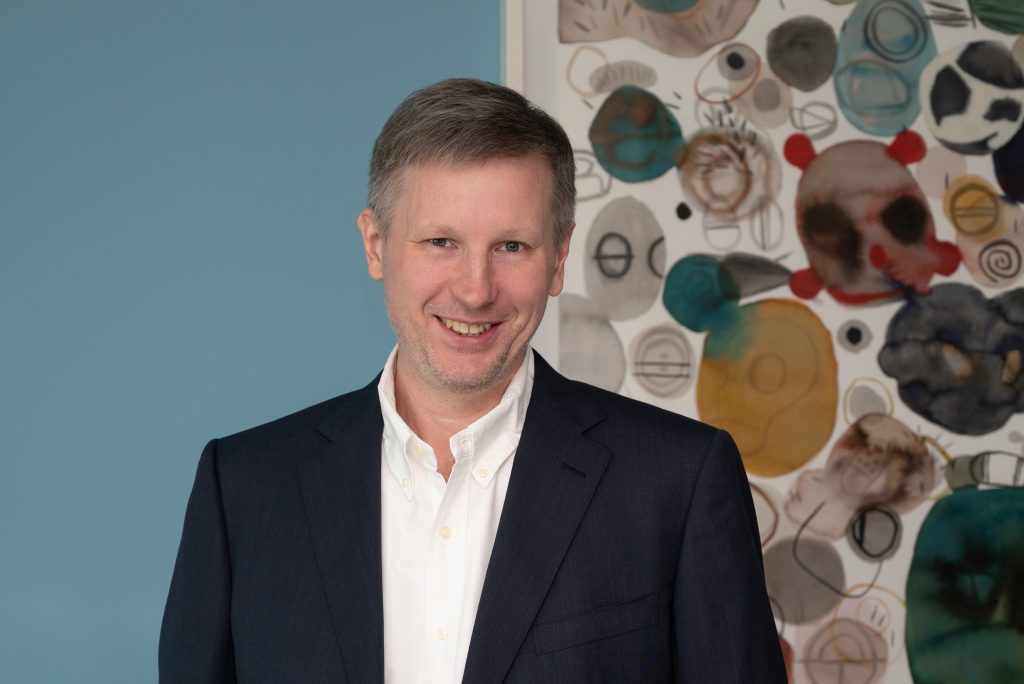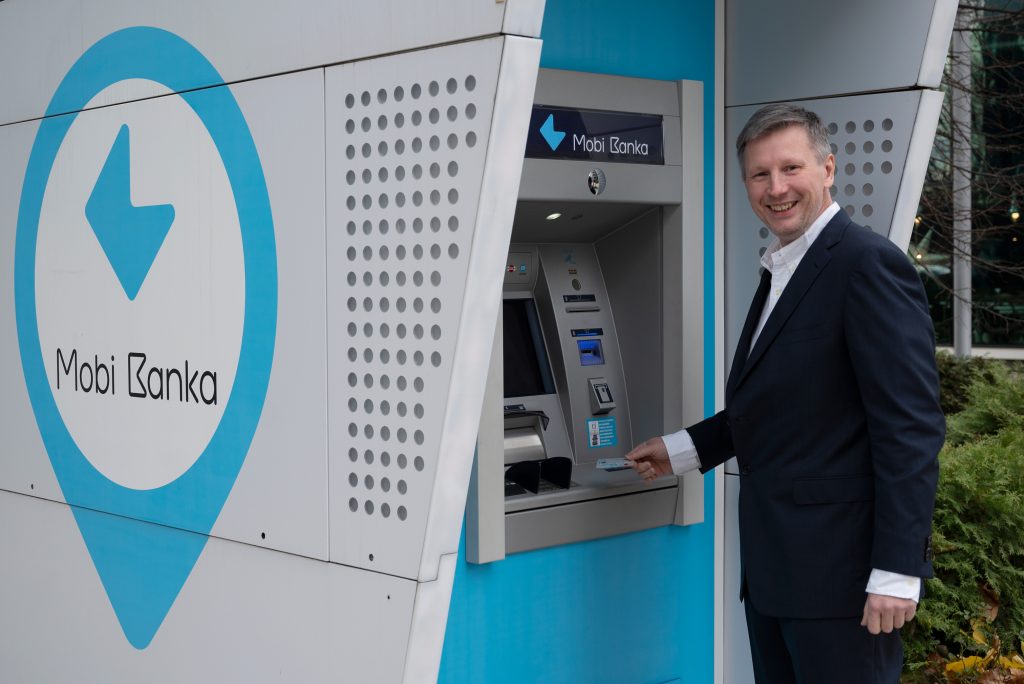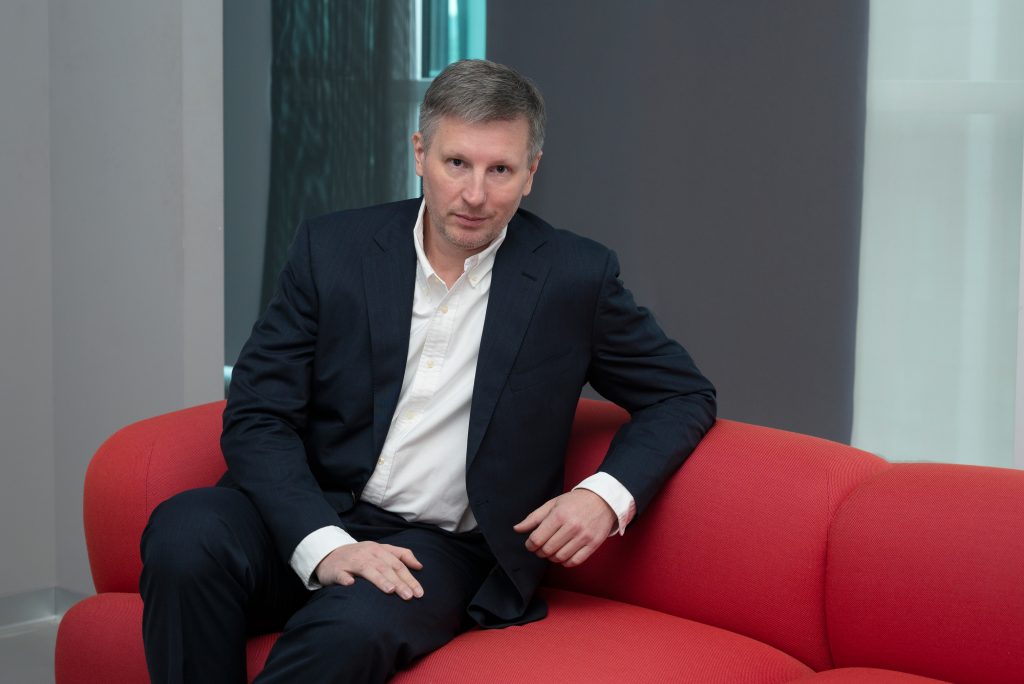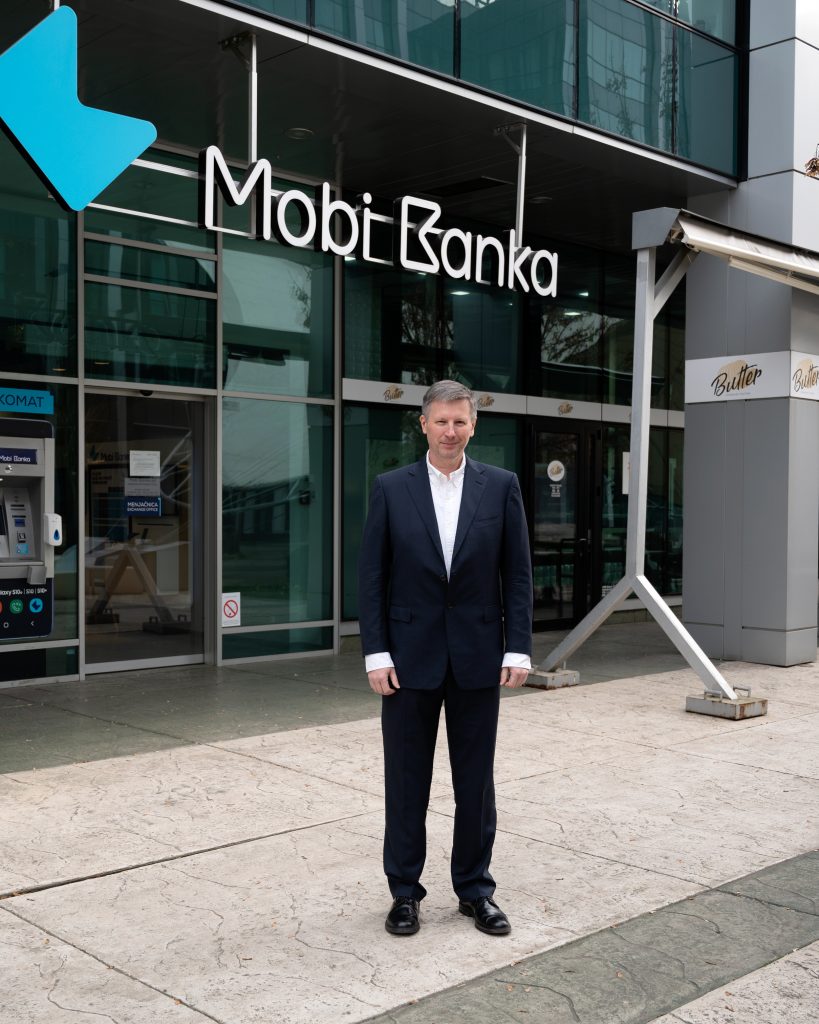Mobi Bank and Telenor are a perfect combination, not only as a product package but also as an example of a great partnership. This is the sixth year of the Bank’s business in Serbia and its accelerated growth is a result of better cooperation with Telenor.
Pavel Maco was recently appointed Chairman of the Managing Board of Mobi Bank in Serbia. In his interview for the World in 2021 issue, he talks about the current situation, further development of Mobi Bank, as well as projections for 2021. “I believe this is an exciting moment for Serbia which brings great opportunities and progress and which we, in the Czech Republic, have experienced too some time ago. The COVID-induced crisis is an obstacle that all countries and industries are dealing with it, but I believe that Serbia will recover and continue to grow. I also like is that people in Serbia and the Czech Republic have the same sense of humour and that we can easily understand each other, “concluded Mr Maco.

We recently saw on the news that, in terms of GDP per capita, the Czech Republic is now ahead of Spain. What is the Czech recipe for success that we could also apply in Serbia?
We have done some important things in the right way in the Czech Republic. Our development has been stable over a long period, so I would say that stability is the best recipe. We have been focusing on developing industries like the automotive and we have liberalized all services. Virtually all banks are owned by large global stakeholders. Most importantly, we were not afraid of globalization, but we accepted it and utilized all its benefits. Our PPF Group is a great example of this – we operate on three continents, in 24 countries, and have assets worth almost EUR 50 billion.
A larger share of e-commerce requires more specific digital banking services. Things will not return to the previous state, and we see some changes that could last forever.
You have worked in important positions in India, Kazakhstan and the Czech Republic. What are the similarities and differences in doing business in Asia compared to European markets, as well as in consumer habits?
It is surprising to see that consumer habits are quite similar. The Asian economy has been growing very fast lately. Given that they have started building modern infrastructure only recently, their infrastructure is of much higher quality than what we have here in Europe. They use the latest technologies, while the infrastructure in Europe is made using technologies created decades ago. We have a lot to learn from Asia. Everything there is very simple because it is adapted to the preferences of local consumers. That is why our vision for Mobi Bank is to continue to innovate and transform banking so that it is mobile, direct and easy to work with.

How is Serbia progressing in this regard? How is digitalization progressing?
It’s getting better. I would say that Serbia has the same inherited problems as Europe, but that it also has an advantage in that it is a combination of East and West. The infrastructure is modern and built with the use of the latest technologies, which is similar to Asia. As for Serbian banking, I have always believed in the idea of online banking. Today, transactions are mostly digitalized, and a big shift in digitalization of credit and deposit products is obvious.
We cannot claim to live in the 21st-century while, at the same time, waiting in queues in front of bank counters. We do not see citizens as “couriers” of the bank. People take out loans because they need money, and I think we are here to make people’s lives easier, not harder. We talk about humane banking because we create our products and services with a person, a user and their needs in our mind.
The banking system seems to have successfully responded to all the challenges. What are the current trends in the global banking industry?
General banking is becoming more digital, more so than other sectors. In Europe and the USA, we see banks being replaced by a form of various financial-technological companies (FinTech) which are very narrowly specialized, usually for payment services. However, in classical banking, innovations are banks that integrate with other types of companies. For example, telecommunications companies in India have started to open their banks and thus provide hundreds of millions of their customers with the option of transactional banking. In this way, they introduce services that are beneficial because of the synergy of telecommunications and banking, which is something we also do in Serbia, in close cooperation with Telenor.

How would you assess the regulatory framework for banks in Serbia?
Governor Tabaković is a great leader and woman who manages to sail the ship that is the Serbian banking system through all storms. All of us in the Bank and the Group admire her for that. From this perspective, I think that the regulations here have a good purpose and help stabilize the banking sector. For example, the NBS has a new regulation in place which simplifies approval of small loans, worth up to 90,000 dinars, and the only document a person need is a personal statement showing their income. This has a very good repercussion because this kind of loan is low risk, but also in the context of the crisis caused by COVID-19. This is a good demonstration of flexibility in the regulator’s procedures.
Generally speaking, the NBS is an instigator of positive changes in Serbia and we welcome their innovations, such as the use of IPS QR code for payment of bills, which we will introduce by the year-end. You see, Mobi was founded as Telenor Bank, a digital bank, in 2014, which means that the problem was not in regulation, but in the lack of fresh ideas and innovations.

What challenges did Mobi Bank face in Serbia and how did you solve the problems caused by the pandemic?
The good thing is that we are a completely digital bank, so we had no problems in providing our services. But, in addition to that, we are also an employer. In that sense, we had the same problems like any other company, but we also had one advantage. Thanks to the hard work and dedication of the bank’s team, our internal processes are digitalized, so it wasn’t a big problem for us when our employees started to work from home. Now. our offices are full to 25% of their capacity, and we recommend that our staff work from home. This change did not affect the productivity of our employees. The experience we have gained in the last few months has given us an insight into the potential of a different way of working in the future and we are now preparing for the revolution of ‘office space’.
Employees are always looking for more flexibility, but this situation has forced employers to test new approaches, for which they would not have the courage to implement in other circumstances. In the end, we discovered that we had nothing to fear.
Only two months ago, the bank celebrated its 500,000 users, and today our family has 50,000 more members.
Mobi Bank is the first mobile and internet bank in the country. What does the synergy between Mobi Bank and Telenor look like today?
Mobi Bank and Telenor are a perfect combination, not only as a product package but also as an example of a great partnership. This is the sixth year of the Bank’s business in Serbia and its accelerated growth is a result of better cooperation with Telenor, with which, apart from the same vision, the Bank also shares the same owner – PPF Group – one of the leading European investors in telecommunications and banking. We are now even more closely connected because we are part of the same family. At the same time, we are part of many families in Serbia and for all of them, our motto is – there is no stopping us in realizing the vision of humane and better banking.
There is a lot of synergy between Mobi Bank and Telenor – a huge customer base on Telenor’s side and specific services that can only Mobi Bank provide. There are also some benefits to sharing the cost base. For example, our customers can have the required physical interaction with the Bank in Telenor stores.

What are the bank’s plans for 2021 in terms of innovation? Do you think that the coronavirus might slow down or speed up the development of new ideas?
Only two months ago, the bank celebrated its 500,000 users, and today our family has 50,000 more members. Partnership with Telenor is key to our growth strategy, but we can also envisage working with other retail companies. In building partnerships, we will provide services and make life easier for end-users. Integrating different types of services at different levels is a global trend, and it could be a good opportunity for us.
Another of our key goals is to offer more of our services to existing customers. We would like to focus on financing and retail transactions. We plan to introduce new ways of simplified transactions related to digital purchasing and financing that will be fast, fully electronic and very transparent. We will not only take care of the payment during the purchase but also the financing of that purchase for the user either through loans or credit cards. That will be our way forward.